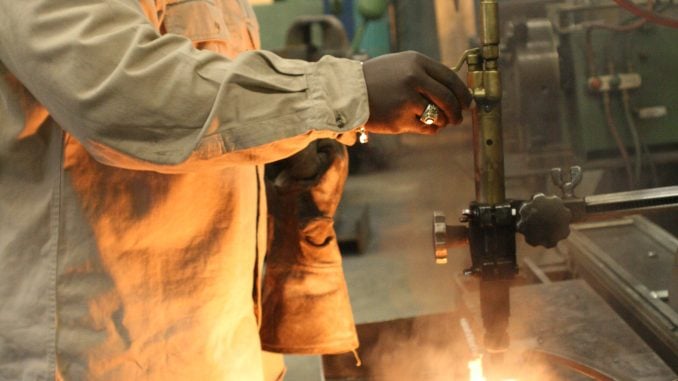
North Carolina community colleges depend on funding from the state legislature for the majority of their revenue. For several programs crucial to employers — in fields such as health care, construction, manufacturing and public safety — training programs are funded at a lower rate than traditional curriculum programs, simply because they award a certificate or credential, instead of a diploma. In a three-part series, North State Journal will look at the impact of this funding imbalance, and what is currently being done to solve it.
Part 1, April 4: What the funding imbalance means to community colleges in the state, and the results of a one-year pilot program that is increasing the funding for selected workforce training programs.
Part 2, April 11: How employers around the state, who are desperately seeking qualified candidates for many specialized jobs, would benefit from a change in the funding model.
Part 3, April 18: Will the state legislature provide parity in funding for noncredit and curriculum courses?
RALEIGH — North Carolina community college advocates will be petitioning policy makers in the upcoming legislative session to work toward achieving funding parity for traditional curriculum and noncredit (short-term, skill-based certificate programs) course offerings. A top priority for these state-funded institutions this year, it is also one that is echoed in both sentiment and on-the-ground job numbers from business groups and employers across the state.
The N.C. Chamber of Commerce shares space alongside community colleges on the front line of this issue as the state’s largest nonpartisan business advocacy group, in frequent partnership with the colleges to develop strategies and programs surrounding workforce development. Vice President of Governmental Affairs Gary Salamido believes that continuing to identify opportunities to increase the skilled labor pool will only strengthen N.C.’s ability to fill jobs across the board.
“Businesses in North Carolina are thriving, but the biggest issue impeding their growth is the growing shortage of workers with the adaptable life skills they need to succeed in the modern workplace,” Salamido said.
Salamido noted that the N.C. Chamber is focused on advocating for workforce solutions but sees the need for attention at a higher level if these are to produce more measurable results.
“Many aspects of the North Carolina talent supply chain are working hard to cultivate top talent in our state, but struggle to unite behind a clearly defined common goal,” he said.
THE NUMBERS
A study by the Institute for Supply Management (ISM) released last week showed that an important measure of U.S. factory employment dropped in March, believed to be a strong indicator that labor and skill shortages were affecting overall production. North Carolina depends on skilled labor in multiple industries that contribute to the state’s economy, with one of the largest high-skill pools surrounding and supporting manufacturing businesses.
“Many different North Carolina industries, including health care, agriculture and construction, face challenges finding employees with the right skills necessary for the job,” said Salamido. He pointed to statewide workforce data that reflects the nationwide skilled labor force trend.
“For example, the manufacturing industry accounts for nearly 21 percent of North Carolina’s total economic output and employs 10.8 percent of our workforce,” he said. “But manufacturers face challenges overcoming outdated stigmas, and while more than 1 million new manufacturing jobs have been created in the U.S. over the last seven years, 390,000 of those remain unfilled.”
Charlotte Pipe and Foundry is navigating the realities borne out by these anemic skilled labor numbers. The 117-year old Charlotte-based manufacturer makes pipes and fittings for plumbing systems out of cast iron and plastic, and relies on a workforce that is well trained on the machines they operate. Brad Muller, Vice President of Marketing for Charlotte Pipe and Foundry — which employs more than 1,400 workers in seven plants around the country — said that the company is not only in need of skilled labor to run the plants and operate the machines, but also as the ultimate points of sale for their products.
“We employ extruder operators, mold technicians, electricians, maintenance people, engineers, cost accountants and more. We also depend on plumbers as our end-use customers. As with other skilled trades, there are a shortage of plumbers and other construction workers in the U.S.”
Muller pointed to a long-term relationship with South Piedmont Community College, which is located across the street from its plastics plant in Monroe, Central Piedmont Community College and UNC Charlotte, as reliable training grounds for skilled workers in the past, and he thinks funding parity would benefit not only Charlotte Pipe and Foundry but the U.S. economy overall.
“College is not for everyone, and having a skill or trade can be a good living for someone,” Muller said.
REINVENTING BUSINESS AS USUAL
Currently, the N.C. Chamber partners with the N.C. Community College System on multiple fronts, often working with many other statewide stakeholders, to advance strategies aimed toward creating a workforce that best matches the state’s evolving business engines.
“We’re grateful to work with local community colleges throughout the state to promote apprenticeships, study workforce development challenges, and better align education systems with workforce needs,” Salamido said. “Funding is just one aspect of this process,” that his group will continue to follow, as member businesses remain concerned about the current skills gap.
As their call for course funding parity takes shape during the upcoming legislative session, Johnston Community College President David Johnson shares the concerns of many businesses across the state.
“The employers are saying, ‘We’ve got to find employees, and they’re not out there,’ and the community is saying, ‘We’ve got to have jobs, and they aren’t out there,’” Johnson said. “The General Assembly, I think, will look at this favorably, because it will support both efforts.”

